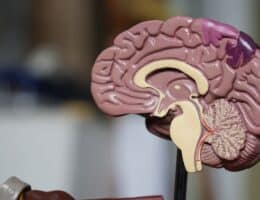How does hypothyroidism vs hyperthyroidism compare in terms of symptoms, causes, and treatment approaches?
These thyroid disorders each come with their own unique sets of challenges, and understanding the differences between them provides valuable insight into managing them.
In this comprehensive guide, we’ll unravel the mysteries surrounding the conditions and explore their distinct characteristics, shedding light on the intricate web of symptoms that define hypothyroidism and hyperthyroidism.
We’ll also navigate their causes, diagnostic methods, and treatment options to empower you with the knowledge to recognize, understand, and actively participate in the management of your thyroid health.
Hypothyroidism
Hypothyroidism is when your thyroid gland can’t make enough hormones to function well.
The thyroid gland, situated in your neck, plays a crucial role in regulating various bodily functions by producing the hormones triiodothyronine (T3) and thyroxine (T4). In turn, T3 and T4 influence metabolism, energy levels, body temperature, and the workings of your organs.
In hypothyroidism, the thyroid gland fails to produce an adequate amount of these hormones, leading to a slowdown in the body’s metabolic processes, which can lead to weight gain.
Hypothyroidism affects approximately 5 out of 100 Americans over the age of 12, although the majority of cases are mild. Women are more likely to develop the condition than men, with the disorder also being more common among those over 60.
Hyperthyroidism
Hyperthyroidism is characterized by an overactive thyroid gland leading to the excessive production and release of T3 and T4. With too much thyroid hormone in the body, many of its functions speed up.
You may experience an increased heart rate and appetite, anxiety, heat sensitivity, or sudden weight loss.
Around 1 out of every 100 Americans over the age of 12 has hyperthyroidism, and the condition is also more common in women and those over 60(1).
Symptoms of Hypothyroidism vs. Hyperthyroidism
Understanding the distinct hypothyroidism vs. hyperthyroidism symptoms is crucial for early detection and effective management of your disorder.
While both conditions involve the thyroid gland, they manifest in contrasting ways due to the imbalance of thyroid hormones.
Here are the key symptoms associated with hypothyroidism and hyperthyroidism:
| Hypothyroidism | Hyperthyroidism |
| Fatigue | |
| Insomnia | |
| Hair loss | |
| Depression | Anxiety or nervousness |
| Weight gain | Weight loss |
| Cold sensitivity | Heat intolerance |
| Muscle stiffness | Tremors |
| Puffy face | Bulging or puffy eyes |
| Slow heart rate | Racing or pounding heart |
| Constipation | Frequent bowel movements |
Important note: Individual experiences vary, and not everyone will exhibit all of these symptoms. A timely consultation with your healthcare provider is crucial for an accurate diagnosis.
Causes
Hypothyroidism and hyperthyroidism arise from distinct factors that impact the function of the thyroid gland.
Hypothyroidism
The most common cause of hypothyroidism is Hashimoto’s disease. This is an autoimmune disorder that involves the immune system mistakenly attacking and damaging the thyroid gland. The condition also leads to chronic inflammation.
Other causes of hypothyroidism include:
- Thyroiditis—inflammation of the thyroid due to a virus
- Surgical removal of part or the entire thyroid gland
- Radiation treatment of the head or neck
- Certain medications that treat heart conditions, bipolar disorder, and cancer
Some individuals are born with congenital hypothyroidism, which can happen when the thyroid gland is underdeveloped.
You are more likely to have an underactive thyroid gland if you have other health problems such as:
- Type 1 or 2 diabetes
- Lupus
- Rheumatoid arthritis
- Celiac disease
- Pernicious anemia
Hyperthyroidism
Graves’ disease is the most prevalent cause of hyperthyroidism. This is also an autoimmune disorder, however it involves antibodies stimulating the thyroid gland to produce excess hormones.
Other causes of hyperthyroidism are:
- Thyroiditis
- Overactive thyroid nodules
- Overtaking medication for hypothyroidism
- Excessive iodine intake
- A noncancerous tumor of the pituitary gland
You are more likely to develop an overactive thyroid if you:
- Have a family history of thyroid disease
- Use medicines that contain iodine
- Use nicotine products
- Have health problems such as type 1 or 2 diabetes, pernicious anemia, or primary adrenal insufficiency
Possible Complications
Both hypothyroidism and hyperthyroidism, when left untreated or inadequately managed, can lead to various complications affecting different systems in the body.
It’s essential for individuals with thyroid disorders to seek medical attention and follow their prescribed treatments to minimize their risk of any adverse effects.
Complications of hypothyroidism include:
- Cardiovascular issues: Untreated hypothyroidism may lead to elevated cholesterol and triglyceride levels, increasing the risk of heart disease(2).
- Mental health concerns: Severe hypothyroidism could contribute to depression and cognitive impairment.
- Goiter: Prolonged hypothyroidism can cause the thyroid gland to enlarge, which may cause discomfort or difficulty swallowing.
- Peripheral neuropathy: Nerve damage can occur, resulting in symptoms like tingling, numbness, and pain in the extremities(3).
- Myxedema coma: A rare, but life-threatening, condition that results in swelling, lethargy, and a decreased level of consciousness(4). This requires immediate medical treatment.
The complications of hyperthyroidism are:
- Osteoporosis: Excess thyroid hormones can accelerate bone loss, leading to osteoporosis and an increased risk of fractures(5).
- Eye problems: Graves’ disease, a common cause of hyperthyroidism, could lead to eye problems such as double vision and inflammation of the ocular tissues(5).
- Reproductive issues: Menstrual irregularities and fertility problems may arise in women with untreated hyperthyroidism.
- Skin issues: Hyperthyroidism may cause skin changes, including thinning, moisture loss, and, in some cases, a condition known as pretibial myxedema.
- Thyroid storm: In severe cases of untreated hyperthyroidism, a life-threatening condition can occur characterized by a high fever, rapid heart rate, and confusion(6).
It’s important to remember that early detection, proper diagnosis, and effective management of these thyroid disorders significantly reduces your risks of developing complications.
Regular monitoring by your doctor and adhering to your prescribed treatments is essential to maintain your thyroid health and overall well-being.
Diagnosis
Thyroid issues can’t be diagnosed based on symptoms alone, as many are the same as other diseases. Your doctor may use a combination of laboratory and imaging tests to confirm hypothyroidism or hyperthyroidism and find its cause. These may include:
- Blood tests
- Ultrasound scan
- Radioactive iodine uptake test
Blood Tests
If your doctor suspects you have a thyroid issue, they may initially order a thyroid-stimulating hormone (TSH) and free T4 test.
Elevated levels of TSH indicate that the thyroid is underactive, as the pituitary gland produces more of the hormone to stimulate the thyroid. TSH is usually low in hyperthyroidism because the pituitary gland reduces its production when thyroid hormone levels are elevated.
The free T4 test is a measure of the amount of available thyroxine in the bloodstream. Low levels may suggest hypothyroidism, while elevated amounts confirm hyperthyroidism.
Your healthcare provider could also use antibody tests to help diagnose any autoimmune disorder that could be causing thyroid problems.
Ultrasound Scan

An ultrasound scan is a non-invasive imaging technique that utilizes sound waves to create images of the thyroid gland.
While this scan doesn’t diagnose hypothyroidism or hyperthyroidism directly, it provides valuable information about the structure of the thyroid gland, helping to identify certain conditions.
An ultrasound can show if the thyroid is enlarged, if nodules or cysts have developed on it, or if the structure of the gland is altered. Observing these changes may help your doctor differentiate between thyroid disorders and guide their decisions regarding further interventions.
Radioactive Iodine Uptake Test
A radioactive iodine uptake test is a procedure used to evaluate the function of the thyroid gland. This test is particularly helpful in diagnosing hyperthyroidism and determining the cause of excessive thyroid hormone production.
A technician will give you a small, safe amount of radioactive iodine, which your thyroid gland will absorb and incorporate into its cells. The radiation emitted from this iodine is then detected and measured.
In hyperthyroid conditions the thyroid will take up more iodine than usual, leading to increased radioactive emissions. The test can also provide information about the size and distribution of the thyroid tissue, helping to identify a goiter or nodules.
The radioactive iodine used in this test is typically very low in radiation and considered safe for diagnostic purposes. However, it is usually avoided in pregnant women due to the potential risks to the developing fetus.
Treatment
Your treatment plan will depend on the severity of your condition, what’s causing it, and your age.
Hypothyroidism
Hypothyroidism can’t be cured, but it can be effectively managed. The primary treatment for an underactive thyroid gland involves replacing the deficient hormones with a synthetic form called levothyroxine, aiming to bring TSH levels back to within the normal range.
As you achieve more balanced hormones, you should notice a reversal of hypothyroidism effects.
Hyperthyroidism
Hyperthyroidism is highly treatable through medications, radioactive iodine therapy, or surgery.
Antithyroid medications, such as methimazole, cause the gland to produce less thyroid hormone and control the disease without causing any damage to it.
Radioactive iodine is taken orally and then absorbed by the thyroid. The radiation destroys cells in the gland, reducing hormone production.
Should antithyroid medications or radioactive iodine therapy not be effective, your doctor may recommend surgical removal of part or all of the thyroid gland.
Managing a Thyroid Disorder
Effectively managing hypothyroidism and hyperthyroidism requires lifestyle adjustments and the strategic use of supplements.
Ensure you eat a nutrient-rich diet with an adequate intake of essential vitamins and minerals to support your overall health. Take part in physical activity to maintain a healthy weight, and manage stress, as chronic tension can impact thyroid function.
Supplements can play a supportive role in managing thyroid conditions, but it’s important to note they shouldn’t be considered a substitute for prescribed medications.
For hypothyroidism, an option like TonicSea Thyroid Pro contains a synergistic blend of key nutrients that provide support for an underactive thyroid.
Its formula includes L-tyrosine, which aids the normal production of thyroid hormones, and vitamins A and B1, which are vital for the gland’s function.
For general thyroid maintenance, consider a supplement like Ortho Molecular Thyrotain. The product contains a multidimensional blend of botanicals to ensure adequate thyroid function and boost the gland’s overall health by reducing free radical stress.
Mastering Thyroid Wellness
Hypothyroidism and hyperthyroidism each have different causes and symptoms, but most people with thyroid disease are able to manage their conditions through medications and lifestyle adjustments.
Mastering thyroid wellness is possible through education, support, and a resilient mindset.
Contact us for more information on how to manage a thyroid disorder and resources to empower your journey to balanced health. Our team of professionals is here to answer your questions and assist you in navigating the path toward a vibrant life despite thyroid challenges.
Resources
(1) https://www.thelancet.com/journals/lancet/article/PIIS0140-6736(16)00278-6/fulltext
(2) https://www.aafp.org/pubs/afp/issues/2021/0515/p605.html
(3) https://www.ncbi.nlm.nih.gov/pmc/articles/PMC5414436/
(4) https://pubmed.ncbi.nlm.nih.gov/28142035/
(5) https://medlineplus.gov/ency/article/000356.htm
(6) https://medlineplus.gov/ency/article/000400.htm
NOTHING IN THIS WEBSITE IS INTENDED AS, OR SHOULD BE CONSTRUED AS, MEDICAL ADVICE. ANY HEALTHCARE AND/OR NUTRITIONAL MATERIAL CONTAINED IN THIS WEBSITE IS FOR CONSUMER INFORMATIONAL AND EDUCATIONAL PURPOSES ONLY. SUCH MATERIAL IS NOT INTENDED AS MEDICAL ADVICE FOR CONDITIONS OR TREATMENT, NOR IS IT INTENDED AS A SUBSTITUTE FOR A MEDICAL EXAMINATION BY A HEALTHCARE PROFESSIONAL. CONSUMERS SHOULD CONSULT THEIR OWN HEALTH CARE PROFESSIONALS FOR INDIVIDUAL MEDICAL RECOMMENDATIONS.
- Magnesium Threonate: An Honest Buying Guide for Health Enthusiasts - March 21, 2024
- Magnesium Citrate Vs Glycinate: 5 Key Differences And Benefits - March 14, 2024
- How to Pick the Best Magnesium Glycinate Supplement for You - March 7, 2024




